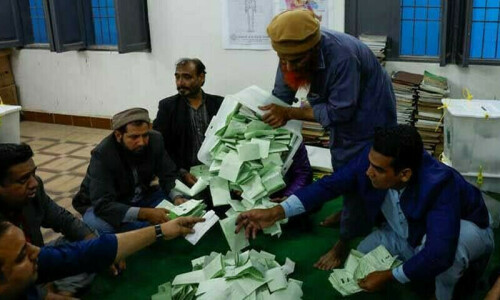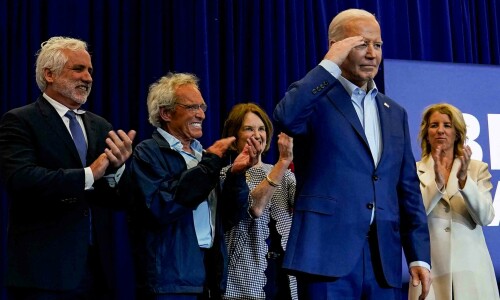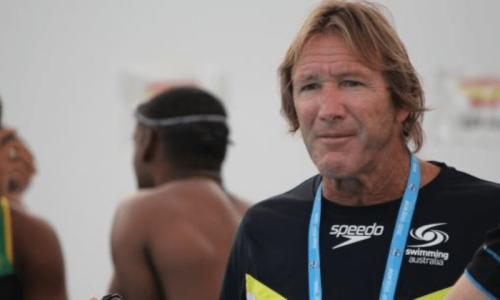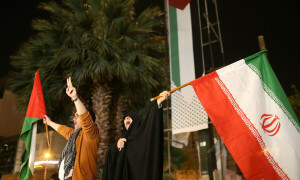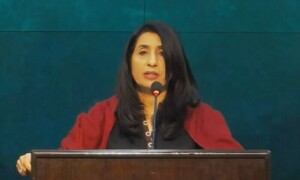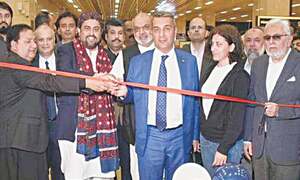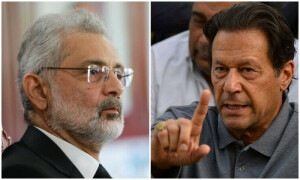FOR two generations, their family was recognised for its world-renowned bangles in Hyderabad. From melting broken pieces of glass and shaping them into glittering designs, the father of Mehmoodul Hasan and Masoodul Hasan inherited his skills from his own father, before passing on his expertise to his sons.
Until a decade ago, the two brothers continued the family legacy. They broke with tradition in 2004 — as did Hyderabad.
From labourers in the bangle industry they took up motorbike manufacturing at a time when Hyderabad began to transform itself into the hub of two-wheeler manufacturing units. Hyderabad now produces the largest number of these vehicles in the country.
“I got a job in a new motorcycle production unit in the SITE [industrial] area in 2004,” says Masood, the younger brother. “I found it interesting and much better than the bangle industry. A few months later, I found a place for my elder brother. I am a supervisor now, earning much more than I could in bangle-making.”
Many others have tasted this windfall in Hyderabad that currently houses more than 20 production units. The motorbike manufacturing industry received a boost after 2002 when local assemblers set up plants for Chinese two-wheelers on the back of a sharp cut on import duties of completely built-up bikes by the government to support local industry.
“What do you want to see first?” asks Muhammad Ali Ghangra of D.S. Motors, the makers of Unique motorbikes, one of Pakistan’s most popular brands, at the entrance to one of his units. “We have also started the production of rickshaws and three-wheelers, so we have two different facilities — one for motorbikes, the other for three-wheelers.”
I go for the motorbike unit. As the sun sets over the Indus and the bustle of city life starts fizzling out, life inside the motorbike manufacturing units is at its peak. Hundreds of workers assemble as many parts to make a 70cc motorbike.
The floor is greasy, the surroundings are noisy. Uniformed workers stand alongside an automatic rolling belt, which carries 12 metallic motorbike frames. As the rolling belt moves, each worker fixes a set of parts.
Imtiaz Shah fixes wheels, brakes, wiring cables, foot pegs, exhaust pipes, seats and lights before the frames move forward to Zeeshan Hussain. Here the engine is mounted on to the painted frame, and various other components are fitted as the motorcycle is sent down the assembly line.
The rolling belt carries 12 motorbikes at a time. I can hear only machines being operated by young workers to fix the parts. Standing near the last work station of the belt, Shahnawaz fixes tyres to finalise the product before it goes for testing. “It takes only 45 seconds,” he says when I ask him how much time it takes to assemble one bike. “From the clutch and brakes to the mudguard, from the engine and handle to lights and seat, it’s ready in 45 seconds.”
With sets of 12 ready motorbikes, I move to the ‘quality inspection room’ where workers undertake a visual inspection. “We check the product manually and also through different machines to detect any bumps or defects,” says Sajid Qureshi. “A test is called dyno for acceleration and braking, shifting, wheel alignment, headlight and tail light alignment and function, horn function, and exhaust emissions. After the dyno test, there is a final inspection of the completed motorcycle.”
After success in the local market, Pakistan’s motorbike industry has joined the club of those countries exporting the vehicles. “On an average we produce 600 bikes everyday — we have the capacity to produce 1,200 pieces a day,” says Mr Ghangra. “We are now exporting to Bangladesh, Afghanistan and a few African countries. The response is good. We expect to reach other countries sooner or later.”
With a better security situation compared to Karachi and availability of skilled labour, industrialists say it is much easier to do business in Sindh’s second biggest city — the largest supplier of locally manufactured motorbikes across Pakistan.
“For the past four years or so, we have been producing 1.6 million motorbikes, ranging from 70cc to 150cc, a year,” says Sabir Sheikh of the Association of Pakistan Motorcycle Assemblers. “The Hyderabad factories contributed the most. There are 104 companies which have won the government’s approval to set up production plants but the majority’s plans have not materialised. Currently, fewer than 40 companies are in production, with most having units in Hyderabad.”
However, he says, the boom that began in 2002-03 may experience a setback if the government further delays the approval of an automotive policy that would allow new models and fresh designs for motorbikes.
Ali Nawaz, one of the workers, reflects these concerns. “People call it a Chinese motorbike but it’s not like that anymore as every part is being produced locally. Only a few parts like the carburettor are imported mostly from China,” he says while gauging every part of the motorbikes digitally before they are to be loaded onto trucks headed for Karachi.
“Over the past 10 years and more, we have grown a lot but are producing a certain range of products. The auto industry the world over relies on innovation but, unfortunately, it’s not the case here. You may admire Hyderabad growing fast in this area but it cannot sustain the momentum if an industry-friendly policy and further opportunity are not offered by the government.”
Published in Dawn, December 9th, 2014



